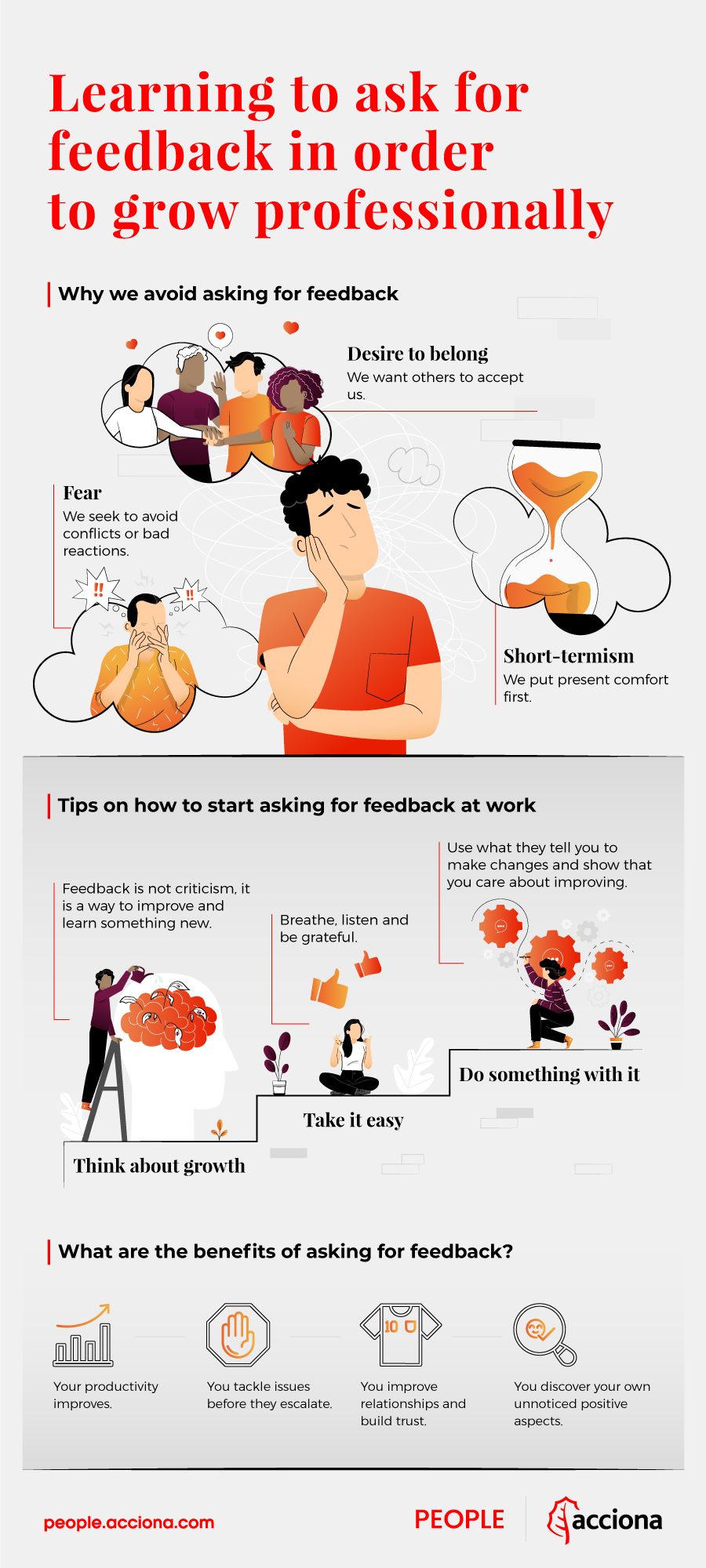On the one hand, we value feedback that gives us new perspectives and helps us grow. We want to improve, to be the best version of ourselves. But on the other hand, we long to feel that we’re accepted as we are, with our strengths and weaknesses.
Overcoming these barriers begins with a change in the way we view feedback. Instead of seeing it as a threat, we can learn to see it as a tool that can drive both our development and our relationships with others. Recognising that personal and professional growth does not exist without discomfort helps us to embrace the feedback culture.
“Recognising that personal and professional growth does not exist without discomfort helps us to embrace the feedback culture”.
The Johari Window and Feedback Culture
Self-knowledge is one of the fundamental pillars for personal and professional growth. However, understanding ourselves fully can be a challenge. This is where the Johari Window comes in, a model developed by psychologists Joseph Luft and Harrington Ingham in the 1950s, which helps us understand how we perceive and are perceived by others.
The four quadrants of the Johari Window
This model is divided into four areas or “windows”, each representing different aspects of our personality and behaviour:
- Open area: This is the part of our identity that is known both to ourselves and to others. It includes information, skills and behaviours that are visible and easy to recognise. This quadrant is the ideal one to expand, as it promotes transparency and trust in our relationships.
- Hidden area: This is where everything we know about ourselves resides, but prefer not to share with others, whether out of fear, shame or desire for privacy. Reducing this space can help generate authentic connection and honesty with those around us.
- Blind area: This is the space where our “blind areas” are located, aspects of ourselves that others notice, but of which we are unaware. This is where feedback culture plays a crucial role, giving us the opportunity to discover what we cannot see on our own.
- Unknown area: Represents what neither we nor others know about ourselves. It’s uncharted territory that may reveal itself through new experiences, deep reflection or even unexpected feedback.

